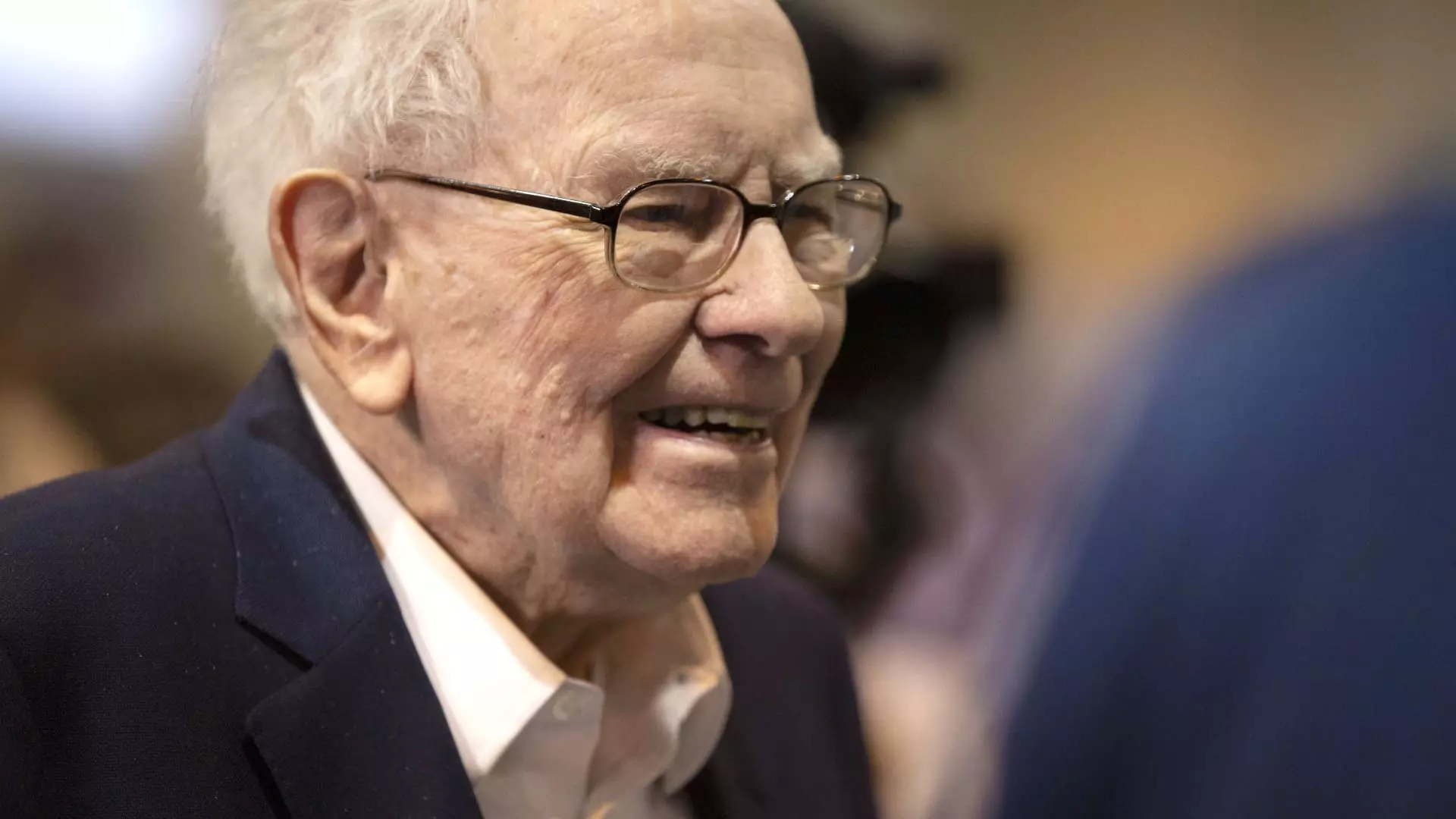Warren Buffett, the legendary investor and CEO of Berkshire Hathaway, has always been synonymous with stock market savviness. However, recent developments have painted a picture of an atypically defensive approach that has left many shareholders and market observers scratching their heads. Despite his long-established reputation for capitalizing on undervalued equities, Buffett has made a series of decisions that contradict this image, leading to increased speculation about the future direction of Berkshire Hathaway.
One cannot overlook the astonishing reality that Berkshire Hathaway now holds a staggering $334 billion in cash. This amount represents a record high, and yet, Buffett’s latest annual letter offered little in the way of clarity about this phenomenon. His assertion that “the great majority of your money remains in equities” raises questions instead of alleviating them. The juxtaposition of a gigantic cash reserve against a lack of purchasing activity is puzzling, particularly given the prevailing expectations for declining interest rates. As market conditions evolve, one would intuitively expect that this cash hoard would be deployed into new investments. However, Buffett’s own sentiments reveal a degree of frustration with current market valuations, suggesting that he finds it increasingly challenging to identify compelling investment opportunities.
Berkshire Hathaway’s recent selling spree serves as a stark reminder of Buffett’s cautious stance amidst what many perceive as a robust market. Reports indicate that the company has net-sold equities for nine consecutive quarters, shedding over $134 billion worth of stocks in this timeframe, predominantly from its stakes in Apple and Bank of America. This trend of divestiture is particularly intriguing, given the context of a buoyant bull market where the S&P 500 has seen impressive gains for two straight years. Buffett’s continued hesitance to invest back into his own company’s stock also raises red flags; during a period when many firms capture the momentum of a soaring market, Berkshire refrained from share repurchases.
What compounds this mystery further is Buffett’s candid acknowledgment of the unease stemming from rapidly shifting economic indicators, including concerns about overall market valuations and a potentially slowing economy. As volatility becomes the backdrop of the current investment landscape, one cannot help but wonder whether this defensive maneuvering signifies something more profound—a potential shift in Buffett’s long-term strategy or perhaps a buffer in anticipation of leadership transition.
For those closely following Berkshire Hathaway, an essential aspect of Buffett’s latest letter is the hint at the elevation of Greg Abel. As the designated successor, Abel’s impending influence over investment decisions signifies a potential turning point for the firm. Buffett’s glowing remarks about Abel—drawing parallels to the late Charlie Munger—indicate his deep trust in Abel’s judgment, especially during times when opportunities seem scant. While it remains to be seen how Abel’s leadership style will unfold, it’s evident that preparations are being made for a smoother transition, although it raises questions about the prudence of current operational strategies.
Given that Buffett has notably highlighted his sustained interest in increasing stakes in Japan’s trading houses, this revelation could hint at an strategic allocation of resources. Investors may be reassured by a commitment to growing certain international interests in an otherwise cautious portfolio management approach. However, pondering over these moves invites critical discourse on whether such decisions are indicative of a broader strategy or merely temporary adjustments.
Warren Buffett’s most recent choices, characterized by consistent selling and bolstering cash reserves, create a substantial contradiction to his long-standing philosophy of aggressive equity investment. With persistent uncertainty regarding the economic landscape, coupled with rising fears of potential downturns, it becomes clear that Buffett’s defensive strategy represents a personal judgment shaped by the circumstances he perceives. As shareholders navigate these changes, it is crucial for them to interpret these actions not merely as a response to market trends but as a signal that could dictate the future of Berkshire Hathaway under new stewardship. Investors must not only watch closely as this narrative unfolds but also be prepared for the possibility that Buffett’s legacy may evolve in ways that redefine value investing for generations to come.

